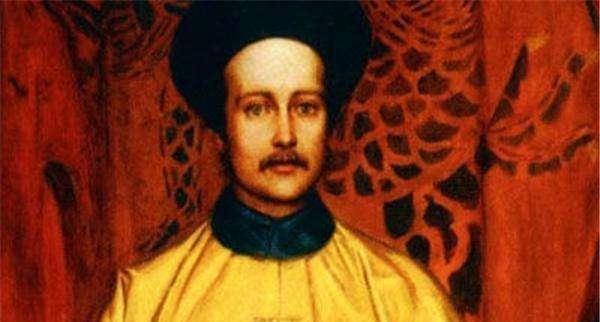In the late Qing Dynasty, many foreigners were active in the Chinese military field and had a great influence, such as the British Lang Weili, who served as the chief instructor of the Beiyang Navy, and the American Huaer, the leader of the "Foreign Gun Team". One of them, a Frenchman named Pinel, had a legendary experience, not only joining the Chinese as a "foreign son-in-law", but also being the first foreigner to be named a warrior by the Qing court.

Binell's experience in China was inextricably linked to Li Hongzhang's Huai Army. In the early 1860s, in order to suppress the Taiping Heavenly Kingdom Movement, Li Hongzhang formed the Huai Army. Initially, the Huai Army's operations were mainly based on cold weapons, but later Li Hongzhang explored a set of ways to strengthen the army, requiring training with foreign exercises and weapons, and extending the employment of foreigners as military instructors. At this time, the French officer Pinel happened to be stranded in Shanghai, and he became a military instructor under Li Hongzhang's general Liu Mingchuan.
Binell helped Liu Mingchuan to carry out reforms, eliminate old muskets, purchase new rifles and new artillery that have been modernized, establish a foreign artillery battalion, and change the mode of warfare to a new method of warfare using new rifles to assault under the cover of artillery. The troop training course written by Binel for Liu Mingchuan's "Ming Army" was also promoted by the Qing government to all armies throughout the country. Binell not only trained soldiers seriously, but also treated people frankly, so he was very much valued by Liu Mingchuan, and soon promoted from a military instructor to a foreign artillery battalion pipe belt.
Under the leadership of Liu Mingchuan, who was trained by Pinel, the "Ming Army" showed extraordinary combat effectiveness. Although the Taiping Army at that time also had some new rifles and new artillery, it was difficult to take advantage of the "Ming Army" on the battlefield. What is even more valuable is that Pinel is still a pioneer on the battlefield and personally risks the arrow.
For his outstanding military achievements, Pinel was repeatedly praised, and his meritorious service was rewarded with wearing a flower plume, a named general soldier, and was awarded the title of "Fashshan Abaturu". "Batulu" has the meaning of brave general and hero in manchu, from the establishment of the Qing Dynasty to the Xianfeng period, only 33 people received this title, and it is extremely rare for foreigners to be named "Baturu".
Because of his long expectations in China, Binell successfully integrated into the life of Chinese, he was very interested in Chinese culture, speaking Chinese in the military middle school, writing Chinese characters, wearing Chinese clothes, and cutting his hair, dragging a large braid, which is a scene in the "Ming Army" and even the Huai Army. Liu Mingchuan also treated him like his own brother, and gave him a Chinese named Bi Huaqing, and took the initiative to marry a girl surnamed Huang in Lu'an City, Anhui Province, and Binel became a Chinese son-in-law. With military merit and property, Pinel lived with his wife in Lu'an and became a local gentry. Pinel was very popular, and the locals were willing to associate regardless of their status. When some people saw him and didn't know what to call him, they called him "Bi Devil", and he also agreed with all his mouths, and he did not think that he was sorry.
Pinel had a business and a family in China, so he wanted to change his nationality and settle in Lu'an. Liu Mingchuan reported this new incident to Li Hongzhang, who specially presented the "Hefei Film of Binel's Naturalization to the Imperial Court" in early 1866, saying that Binel was willing to live in the future as a Chinese child and not return to France. Empress Dowager Cixi also found this matter very interesting, after all, she had been bullied by foreigners for many years, and she had only seen Yiren change summer, and had never seen foreigners naturalized, so she gladly approved.
However, the foreigner who was naturalized in China was not able to live in China in peace. In February 1867, the "Ming Army" met the Twist Army in Hubei Province, Liu Mingchuan was greedy and earnest, and did not wait for the friendly army to arrive, he rushed to attack, and as a result, he was surrounded by the Twist Army, and his generals were killed and wounded countless times, and Binel was also killed in a fierce battle.